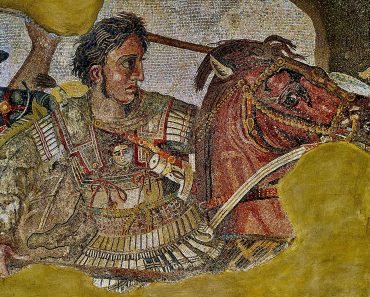Twenty-five years ago, I attended a conference on the holy Greek Island of Patmos. That conference was organised by the Greek Orthodox Church and brought together Members of Parliament of Orthodox background from around the world.
The theme of the conference was bioethics. Even back then the Orthodox Church had considered the theological challenges brought about by modernity and new medical technologies in particular.
Two things impressed me:
One was the way in which fundamental theological values associated with orthodoxy as an existential religion were brought to bear on the new ethical challenges we faced. Surrogacy, stem cell research, IVF, and end of life decisions were all discussed within a framework which was not morally prescriptive or dogmatic. Rather it included a recognition of God’s gift to humanity – our free will. How God has given humans free will within a causal universe is one of the great mysteries of our existence.
Philosophers and scientists alike have grappled with how it is possible for humans to have self determination arising from free will when in principle everything is predictable in a causal universe. Yet as Orthodox Christians we believe that humans can make difficult moral choices to for example turn off life support or agree to an abortion in some circumstances.
We can make these heart wrenching decisions as a result of God’s gift of free will, but we live with their consequences precisely because they are our free choice. It is this recognition of God’s gift of free will that I believe sets the Orthodox Church apart. But with this gift and as reflective humans also comes moral responsibility for our decisions. The church can provide guidance but ultimately we make our own moral choices, and take responsibility for them.
The second thing that moved me about Patmos was the religious history of the island. It was here that Jesus’s Apostle John wrote the last book of the bible – the book of Revelation. He did so in a cave high in the mountains where he had taken shelter from persecution by Emperor Domitian. And when he could no longer see he would speak the words and his scribe, Prochoros, would write them down.
The cave is truly a holy place and my wife Margarita and I were moved to tears as we imagined John The Apostle in that cave 2000 years ago. We promised ourselves that we would return to Patmos to experience Greek Easter. And this year on that beautiful Greek island we did just that.
It is difficult to describe the feeling of listening to the liturgy from start to finish on Holy Friday. We went to the Church of the Apocalypse which is literally a church in the cave where John The Apostle wrote. We should understand that Apocalypse does not have the common English meaning in this church. Rather it means something closer to discovery or insight (Αποκαλυψη).
In that small intimate space, we listened for hours to the liturgy of lament at the crucifixion of Jesus. The voices of the psaltes seemed to resonate off the walls and penetrate our very souls. I will put a couple of videos on Facebook for those interested but no video can capture the intensity if being there.
On Saturday night we attended the service in the Church of the Monastery of Saint John the Theologian atop the mountain. It too was an intimate space with a history dating back to 1088 with exceptional icons and frescoes. Five priests were in attendance and the liturgy was exceptional. I have never heard so many priests singing with such joy when the light emerged from within the sanctuary and spread though the congregation as Hristos Anesti was sung and sung again and again.
The light begins mysteriously in Jerusalem and is flown to Athens and then to all parts of Greece. It represents the victory of light over darkness.
When I lit my candle from that magical holy flame I wished for peace and health for our loved ones and for all mankind. But I also wished for a softening in the hearts of those who were stopping the reunification of our beloved Cyprus.
It is 50 years since the invasion of Cyprus, and we should all pray for a free, united and democratic Cyprus to the benefit of both Greek and Turkish Cypriots. Maybe our prayers from the holy island of Patmos in the cave where Saint John the Theologian wrote and, in the mountain, where for generations priests and monks have prayed will be answered in this 50th year.
Theo Theophanous is the President Cyprus Community Melbourne Victoria and a former Minister of state for the Victorian government







